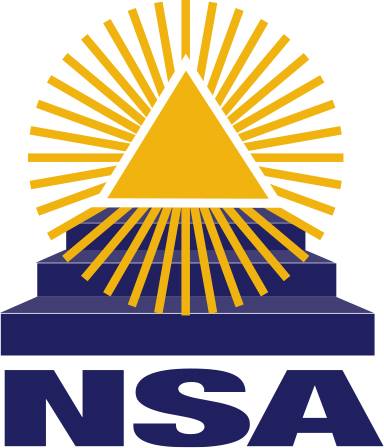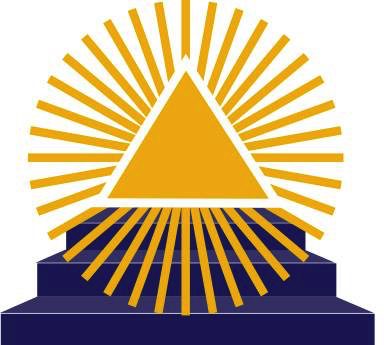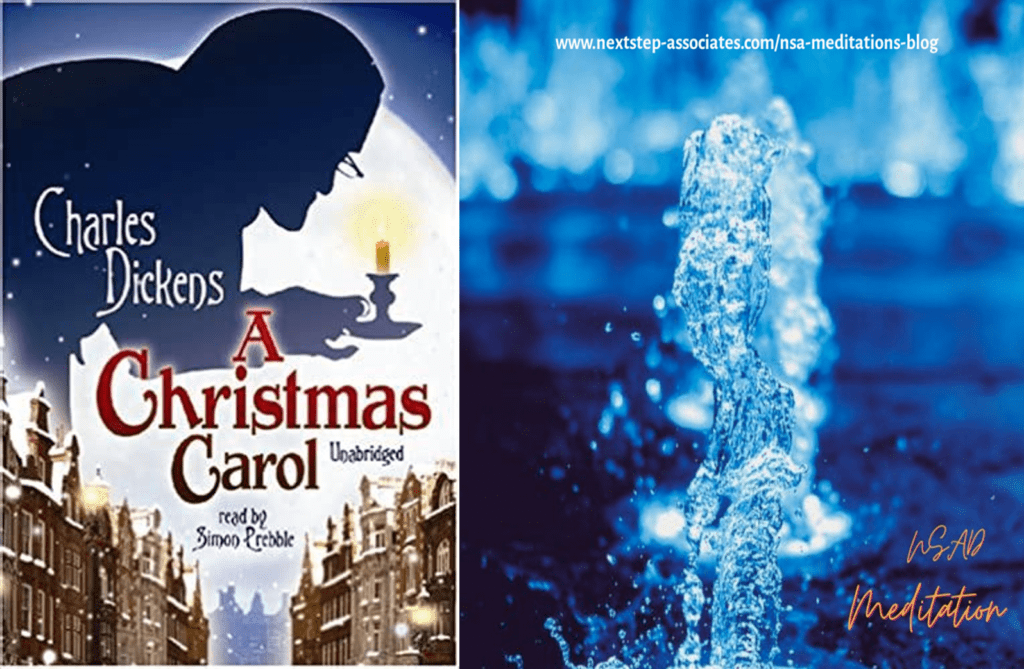In Charles Dickens’ novel, A Christmas Carol, the notoriously tight-fisted Ebeneezer Scrooge meets the second of three ghosts that the spirit of his deceased partner, Marley, had said would come to him on Christmas Eve.
In the room were turkeys, geese, game, poultry, brawn, great joints of meat, suckling-pigs, long wreaths of sausages, mince pies, plum puddings, barrels of oysters, red-hot chestnuts, cherry-cheeked apples, juicy oranges, luscious pears, immense twelfth cakes, and seething bowls of punch, that made the chamber dim with their steam.[1]
After hardily eating and jovial conversation, the giant Spirit of the Present and Scrooge fly off to visit various people. They observe that a toast is proposed for Scrooge at the homes of Bob Cratchit, his employee, and the miser’s nephew, Fred. Immediately, a negative reaction comes from the wives, family, and friends. But the two men are resolute in the desire to toast the shriveled up old miser. Glasses are raised out of respect and love for Cratchit and Fred. The Spirit and Scrooge then fly off to witness the reverence and warmth other families, miners, lighthouse keepers and seafarers give to the Christmas holiday.
Finally, the Spirit of the Present is about to depart, but Scrooge asks him to wait for he sees something protruding from the hem of ghost’s luxurious robe. The giant lifts the robe. There are two skeleton-like children, a girl, and a boy, with claw-like hands, and shifting-fearful-angry eyes. The Spirit of the Present introduces the girl as Want and the boy as Ignorance. These two he predicts will affect the future in disastrous ways because of society’s neglect of them.
Giving in a few festive seasons a meal and temporary shelter to the poor, but to offer few opportunities for a productive life is to keep them hidden and lacking under the cloak of sufficiency and abundance in western culture. To hoard wealth of money, land, opportunity, education and so much more 51 weeks of the year and for one week give a bite to eat or give nothing is to become nothing ourselves. The ghost of Mr. Marly, the late partner of Ebeneezer Scrooge, in the early scenes of A Christmas Carol makes a profound declaration, “Mankind [Humankind] is our business.” To whom do we give throughout the year? Whose life is better because of our sharing?
Reflections
A Homeless Man Walks into a Church
https://www.youtube.com/watch?v=iqZmUV_SFLc
Audio of A Christmas Carol by Charles Dickens:
https://www.youtube.com/watch?v=ZmOioOyFMRk
[1] Dickens, Charles. A Christmas Carol. London, Chapman & Hall, 1843.
Stave three, The Second of the Three Spirits (audiobook). Tiny Little Teacher, 2018, pp. 71-71.
Dorothy Watson Tatem, D.Min., ACC
Senior Associate
Next Step Associates, LLC
Cassandra W. Jones, Ed.D.
CEO & President


